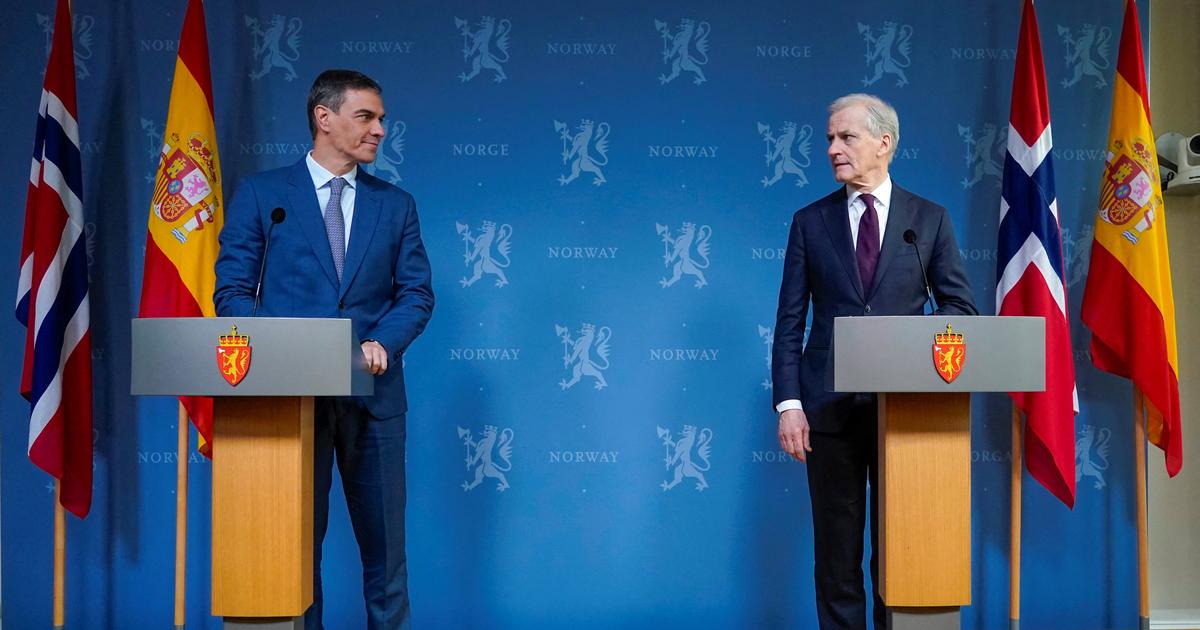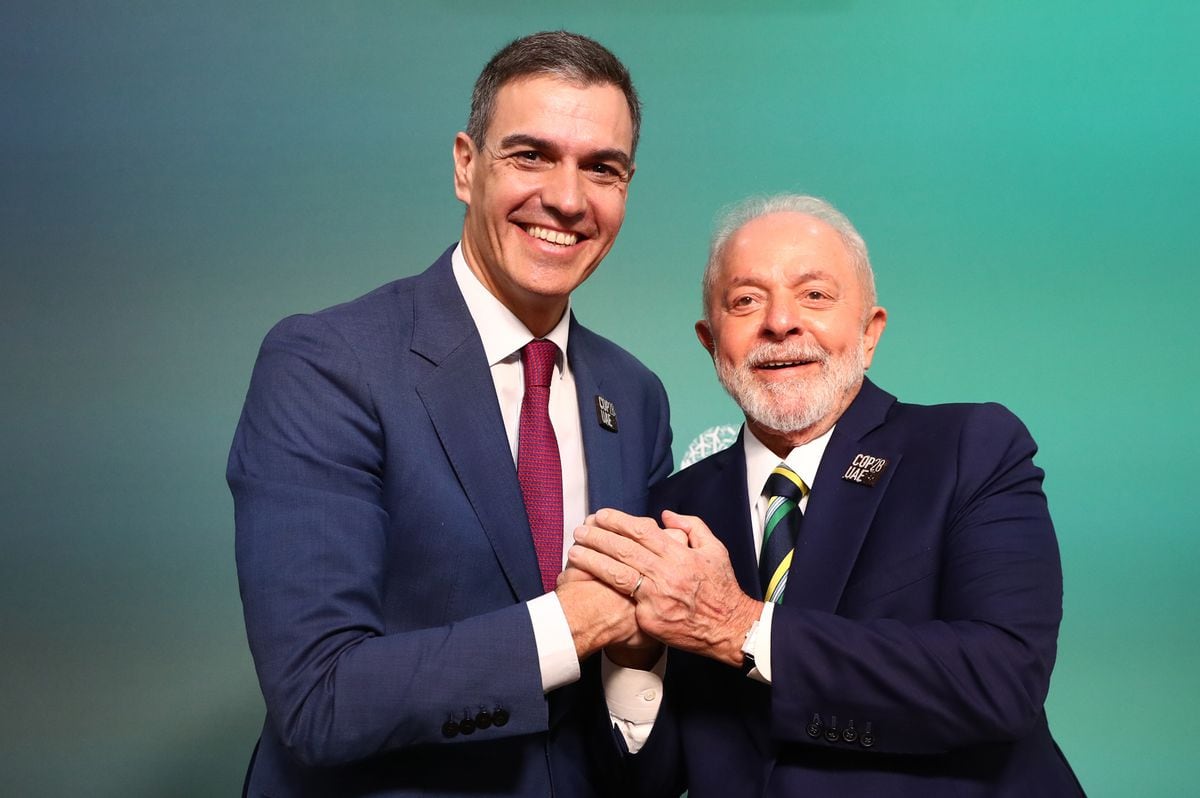After years of colonial presence and despite its geographical proximity, Spain has lost a lot of weight in Africa.
Almost all Spanish presidents have tried to remedy this problem, so far without success.
Pedro Sánchez begins tonight in Luanda, the capital of Angola, his first major African tour with the aim of regaining weight in a continent known for its economic turmoil and pockets of poverty, but with enormous growth expectations and where China has taken the lead. Forward of Europe and the United States, Sánchez will thus be the first Spanish president to visit Angola since 1992, when Felipe González did.
The tour will end in Dakar, the capital of Senegal, where Sánchez will arrive this Thursday night.
Senegal is a strategic country to which all the last presidents have turned in an attempt, which Sánchez will also try to finish off, to help Senegalese reinforce the control of irregular immigration.
And, above all, to convince them to resume repatriation flights from Spain, interrupted since 2018.
Thus, the president will focus on the issue of irregular immigration, a priority in his visit to Senegal, and in the search for a better economic relationship and the entry of Spanish companies into large public contracts in some countries that are still under construction. , the great objective in the case of Angola.
Sánchez has already visited, always with an eye to the migration crisis and security in the entire region, Algeria, Mali and Mauritania, and has pending a large bilateral summit in Morocco that has been delayed several times.
Angola, which has already weathered years of grueling civil war after gaining independence from Portugal in 1975, has historically been a country ravaged by conflict and corruption.
But the current president, João Lourenço, in office since 2017, is making efforts to break with the venality and nepotism of the previous president, José Eduardo Dos Santos.
Angola is an oil-rich country - 50% of its GDP and 80% of its public income depend on this raw material - but now it is trying to diversify.
Several Spanish companies are interested in large public contracts in energy, transport, engineering, water or waste treatment, and some of their executives travel on the plane with Sánchez to enter into these agreements.
With this objective, Sánchez and Lourenço will preside over an Angola-Spain business meeting.
The first stage of the trip, therefore, has a more economic content than a political one.
Both Angola and Senegal are suffering severely from the pandemic crisis, although not so much because of the number of infected - which is not relatively high - but because of the economic consequences of confinements and movement limitations in countries with a huge informal economy .
Sánchez also seeks to reinforce his international role, something that he has always taken care of.
Africa is an important continent for La Moncloa.
Last week, the President of Ghana, Nana Akufo-Addo, was in Madrid with Sánchez, who attended the presentation of Focus Africa 2023. It is a star project of the Minister of Foreign Affairs, Arancha González Laya, who has multiplied her visits to the continent.
In addition to the political and economic agenda, the president's trip also includes symbolic gestures, such as the inauguration in Dakar of the first headquarters of a Cervantes Institute in sub-Saharan Africa.
Moment covers in Senegal
The peak of the trip will come with its final stage in Senegal.
The West African country has been, for years, a key and solid ally for Spanish policy in Africa.
A fact that is explained by its historical political stability, its geographical proximity - just two and a quarter hours from the Canary Islands by plane - and the presence of a growing Senegalese colony in Spain, the result of the migratory flows of the last two decades.
Some 70,000 registered persons make Spain the third European country, after France and Italy, as a destination for the Senegalese diaspora.
The recent upturn in the departure of cayucos from this country to the Canary archipelago and the imminent reactivation of repatriation flights will be at the center of Pedro Sánchez's visit to Dakar.
Sánchez will meet in Dakar with the Senegalese president, Macky Sall, who next year will occupy the rotating presidency of the African Union.
Last November and in the middle of the migratory crisis in the Canary Islands, González Laya already agreed with Sall to start repatriation flights “in a short time”, but so far there have been none.
The issue is extremely sensitive in Senegal.
In just three months of last year, at least 500 young people died trying to reach the islands, according to the World Organization for Migration (IOM).
Seeing those who did make it return by force is not a dish of good taste for their families and citizens.
The sociopolitical context does not help either.
Just a month ago, the arrest of an opposition leader caused thousands of angry young people to take to the streets in the capital and other cities in riots that showed the frustration and exhaustion of the population.
They did so not only because of the deterioration of the democratic quality in recent years, with the shadow of the political use of justice and cuts to freedom of expression, but above all because of the economic hardships aggravated by covid-19.
Even so, Spanish government sources indicate that there is no problem with Senegal to restart repatriation flights and they trust that this milestone will be achieved shortly, and more so after Sánchez's visit.
Senegalese economic growth, which led it to jump from a developing country to a middle-income nation in the past decade, has come to a halt in 2020 with a 0.7% drop in GDP compared to a forecast initial increase of 6.8%, set by the IMF before the crisis.
A government report in September claimed that 85% of households have seen their income reduced, in a country where there is hardly any public aid for unemployment or poverty.
Joint patrols
After a business meeting, Sánchez's first destination in Senegal will be the port of Dakar, where he will visit the civil guards and national police deployed in the area that are part of the joint patrols to prevent the departure of cayucos.
Once the meeting with President Sall is over, Sánchez will sign several cooperation agreements, an area in which Spain has been gaining weight with a planned contribution of 128 million euros between 2019 and 2023, 125% more than in the Previous period.
This increase is supported above all by financial cooperation with the granting of soft loans in areas such as waste management in Dakar or irrigation in the Sahel, which are in addition to the 12 million annual development aid.
Diplomatic and cooperative efforts with Senegal, however, have so far not been accompanied by a significant increase in the business presence of Spain.
With 107 companies installed in the African country, the “growing interest” of the official narrative has not just started, despite the organizational efforts of Spanish businessmen, who became the Official Chamber of Commerce of Spain in Senegal in 2019.
To conclude his visit to Dakar, Sánchez will visit the new headquarters of the Cervantes Institute, whose inauguration is scheduled for this summer, and the military personnel of the Marfil detachment, which provide logistical support to Operation Barkhane, led by France, in the fight against jihadism in the Sahel.
The president will finish there a first tour to sub-Saharan Africa that involves recovering his international agenda, a central issue of his mandate, just when he has decided to launch a positive message of exit from the covid-19 crisis with a vaccination horizon that will lead to have 33 million Spaniards immunized in September, according to calculations presented by the president this week.
Sánchez thus offers gestures inside and outside that he wants to recover normality before the pandemic as soon as possible, although it seems clear that it will not be something imminent.







/cloudfront-eu-central-1.images.arcpublishing.com/prisa/LEW6QMWWHNE5FNIE3XEQGWJXMQ.jpg)
/cloudfront-eu-central-1.images.arcpublishing.com/prisa/2KH4IX4LQI33Q3BM7MCQREEFYU.jpg)
/cloudfront-eu-central-1.images.arcpublishing.com/prisa/JNKEYSPVIXFSA66UHYKQUNTSQA.jpg)


/cloudfront-eu-central-1.images.arcpublishing.com/prisa/KMEYMJKESBAZBE4MRBAM4TGHIQ.jpg)


